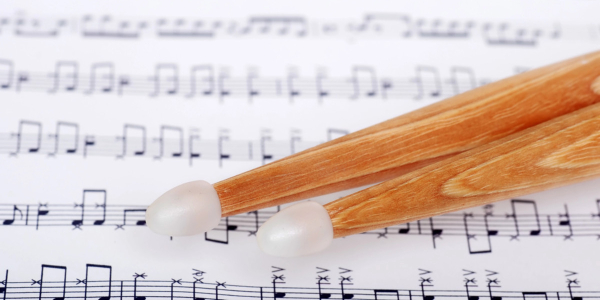
Punctuation is like the percussion of prose. You may not notice it unless it’s showy, but it holds everything together.
Punctuation affects sound of the voice to the reader’s inner ear, while communicating another layer of meaning. Each mark has its own groove: the interruptive informality of the em-dash, the suspension of ellipses, the lift of a comma and the full stop of a period.
Isolate the punctuation
What happens if you look only at the percussion — sorry, punctuation — of your writing? Strip out all the letters and see what remains. For example, one of my blog posts might look like this:
. , . , . ; , , . — , — . : , . ? ? ? , , . . . . , ?Clearly, I was leaning into questions.
And, here’s the punctuation from the first two paragraphs of an email from the wonderful writer George Saunders’ Story Club newsletter:
, " " ( . ) ( ) ( ) . ( , , . ! )His prose (in this email post context) is much less structured than mine. He has the mastery to play fast and loose with the conventions, inhabiting an informal, conversational tone.
What does your percussion soundtrack look like?
Try this with a piece of your own writing. Write down only the punctuation marks in a chunk of text, whether a few paragraphs or a page.
What does the result tell you about your writing voice?
Is it effusive and improvisational? Direct and to-the-point? Highly structured like a Bach fugue? And does this change as you write in different genres, like emails vs. chapters of your novel?
Putting the practice to work
We tend to get stuck in one way of writing that serves us well, or one for emails, one for reports, etc. We can shake up that voice starting with the punctuation.
This month, step outside your usual punctuation choices.
- If you usually write tightly structured prose with commas and semicolons, try a few dashes.
- What happens if you add a question?
- Heaven forbid, try an exclamation point!
See what this does to your writing voice.
And if you are addicted to the em-dash (and yes, you can go too far with these), see if you can swap in commas for a few of them. Consider breaking up longer sentences into short ones. How does that change your voice?
Try writing to a different percussion beat and see what plays out.
Related content
This exercise, like the others in this series, comes from the book The Writer’s Voice: Techniques for Tuning Your Tone and Style.